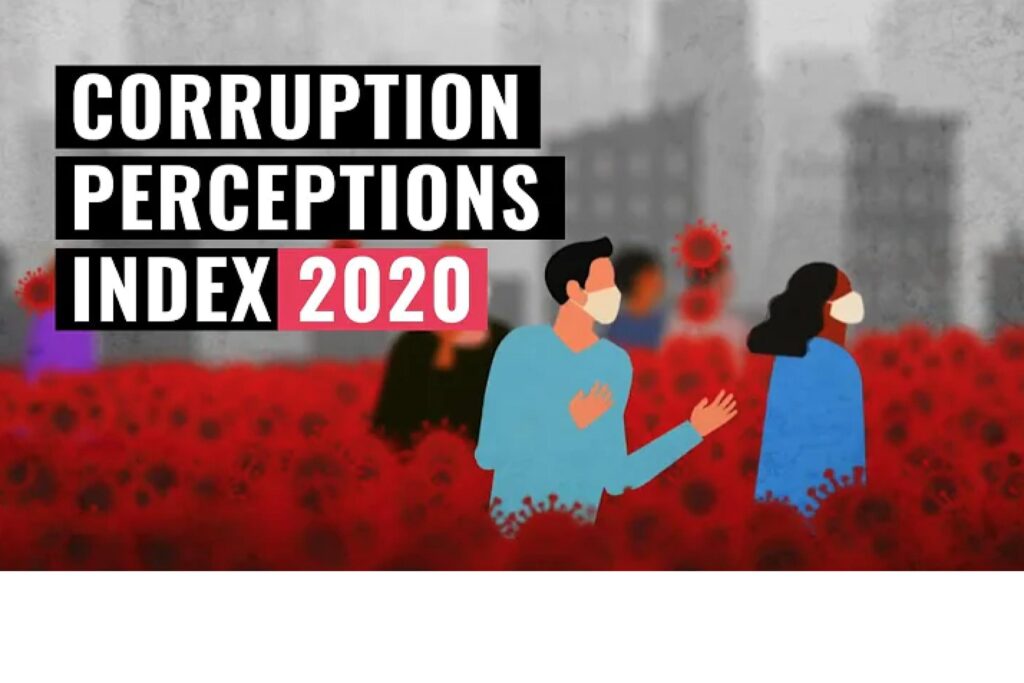GLOBAL HIGHLIGHTS
180 Countries. 180 Scores. How does your country measure up?
This year’s Corruption Perceptions Index (CPI) paints a grim picture of the state of corruption worldwide.
While most countries have made little to no progress in tackling corruption in almost a decade, more than two-thirds of countries score below 50.
Our research shows corruption not only undermines the global health response to COVID-19, but also contributes to a continuing crisis of democracy.
.
In a nutshell
The index, which ranks 180 countries and territories by their perceived levels of public sector corruption according to experts and businesspeople, uses a scale of zero to 100, where zero is highly corrupt and 100 is very clean.
Like previous years, more than two-thirds of countries score below 50 on this year’s CPI, with an average score of just 43. The data shows that despite some progress, most countries still fail to tackle corruption effectively.
.
Results
The top countries on the CPI are Denmark and New Zealand, with scores of 88, followed by Finland, Singapore, Sweden and Switzerland, with scores of 85 each.
The bottom countries are South Sudan and Somalia, with scores of 12 each, followed by Syria (14), Yemen (15) and Venezuela (15).
.
.
Recommendations
To fight COVID-19 and curb corruption, it is essential for countries to:
1. Strengthen oversight institutions
The COVID-19 response exposed vulnerabilities of weak oversight and inadequate transparency. To ensure resources reach those most in need and are not subject to theft by the corrupt, anti-corruption authorities and oversight institutions must have sufficient funds, resources and independence to perform their duties.
.
2. Ensure open and transparent contracting
Many governments have drastically relaxed procurement processes. These rushed and opaque procedures provide ample opportunity for corruption and the diversion of public resources. Contracting processes must remain open and transparent to combat wrongdoing, identify conflicts of interest and ensure fair pricing.
.
3. Defend democracy, promote civic space
The COVID-19 crisis exacerbated democratic decline, with some governments exploiting the pandemic to suspend parliaments, renounce public accountability mechanisms and incite violence against dissidents. To defend civic space, civil society groups and the media must have the enabling conditions to hold governments accountable.
.
4. Publish relevant data, guarantee access
The publication of disaggregated data on spending and distribution of resources is particularly relevant in emergency situations, to ensure fair and equitable policy responses. Governments should also ensure people receive easy, accessible, timely and meaningful information by guaranteeing their right to access information.
.
For the Index – Press Here
.
January 28, 2021, published on Transparency International






